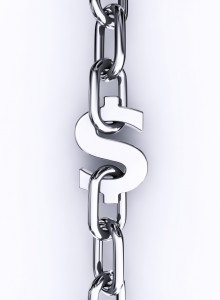 It’s not just your differentiation that makes your strategic plan successful. It’s where that differentiation occurs in the Value Chain, and whether it’s worthwhile.
It’s not just your differentiation that makes your strategic plan successful. It’s where that differentiation occurs in the Value Chain, and whether it’s worthwhile.
When my daughter was younger, she came to me and asked me to help her develop a plan for a terrarium business. I thought it might be a teaching moment. So the first question I asked her was, “Are you going to cast your own glass?” Admittedly, I can be a pedantic jerk sometimes. (Look pedantic up.)
She said of course not. Then I asked her why. She said it would cost too much to buy a kiln and blow glass for the terrariums. She could buy them online. Then I asked her if she was going to build a green house to grow the plants? She said she might because she enjoyed gardening. Next I asked her if anyone would buy her terrariums if she grew the plants and put them together? She said that she thought they would.
So finally I asked, why not try to sell them before you grow them and make them? She asked why.
I told her that it’s important to do the last experiment first, a lesson taught me by an old 3M research chemist, Dr. Gerry Larson. When I ask him why you would do the last experiment first, he said that way I would know if all the other experiments were worth doing. Why waste your time otherwise?
There are two critical strategic principles in this little story that many CEOs often overlook. The first is where in the value chain you are going to compete. The second is whether it’s worthwhile.
Too many organizations miss value chain analysis. They rely on history (the way they’ve always done it) or simply ignore it. It’s especially important to consider it when industries are going through disruption. 
Try getting your team to think this way in your next strategic planning session. It’s an inexpensive way to avoid costly mistakes. It’s also the last experiment.
Do Great Things!
-Hobart
Lee Hobart Stocking
Founder and Chief Provocateur
Prairie Sky Group
651-357-0110 (C)
